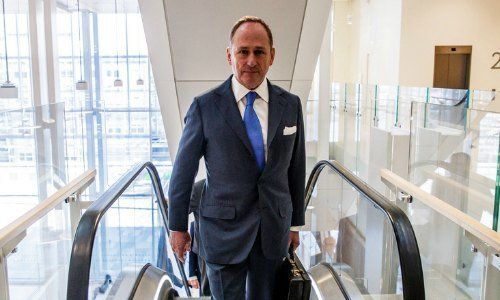The tax trial against UBS at a Paris court will come to a close this week with the publication of the verdict. There are three scenarios for the outcome – but whichever comes true, it won’t likely signify the end of the process.
The Paris judges will deliver their verdict on the UBS trial tomorrow Wednesday, in the early afternoon. The prosecution demanded that UBS be condemned to pay as much as 5.3 billion euros ($6 billion) in compensation.
Prosecutors said UBS had systematically helped French citizens avoid paying taxes over a period stretching from 2004 to 2012. The two sides failed to find a settlement.
Three Scenarios
Five years ago, the French state ordered UBS to deposit 1.1 billion euros as a security for future demands, a form of corporate bail. The bank said the investigation was politically motivated and subsequently stiffened its resolve to fight the claims.
The protracted conflict is unlikely to end tomorrow with the verdict by the Tribunal de Grande Instance – the two sides seem too far apart in their reading of the situation. Three scenarios would appear to be possible outcomes, and all three will leave one side distinctly unhappy.
1. Resounding Victory for the Prosecution
Switzerland’s biggest bank went all-in to fight the claims in France. It appointed a reputed team of lawyers to fight its case and Markus Diethelm, the chief legal counsel of the bank, gave numerous interviews to back up its stance in public.
The judges may still find in favor of the prosecution and impose a fine of as much as 3.7 billion euros and compensation of a further 1.6 billion euros.
That would leave UBS with one option only and that is to appeal the verdict. The bank couldn’t possibly defend paying such an exorbitant amount of money, and even the deposit from 2014 would seem to exceed what is acceptable for the bank.
Also, such a verdict implies that the bank is deemed guilty as charged, with its reputation tarnished not only in France. The demand by the French that UBS should plead guilty was one of the reasons why there was no out-of-court settlement.
2. Defeat for the Prosecution
UBS argued in court that there was no proof for the alleged scale of tax evasion by French clients. If the court finds in favor of UBS, it will likely be forced to pay only a small amount to make amends.
That would render the sum both bearable and acceptable. UBS would have agreed to a payment of 300 million euros, it was suggested earlier. 300 million euros was also what the bank had to pay to settle the tax dispute with Germany.
Such a verdict would confirm UBS Chief Executive Sergio Ermotti and Diethelm in their strategy to fight what they say are excessive demands. However, their sworn enemies in Paris won’t likely accept their defeat.
3. A Draw
The court may of course also order UBS to pay an amount between 300 million and 1.1 billion – in other words between the maximum acceptable to UBS and the minimum asked for by the French. Which could lead to a situation where both sides will see a need to lodge an appeal.
Delaying a payment makes sense for UBS even if it could well afford the fine for obvious economic reasons. For the prosecution however, a total compensation payment below the level of the deposit would correspond to a massive defeat.
The three possible outcomes hence make an early end to the already protracted conflict highly unlikely.































